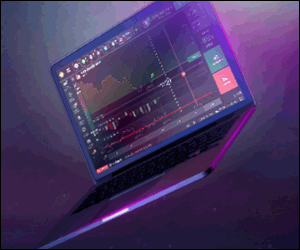Forex market is the largest financial network in the world, which is rapidly growing every year. Countries like the United States and the United Kingdom, as well as most of the European countries, have long been known with the abundance of traders, but gradually the trend became characteristic for Asian and African countries too. What’s more, New Zealand has also emerged as one of the proponents of the Forex industry, where best New Zealand brokers and the country is known for having an exotic currency – NZD.
New Zealand is a relatively new region in the retail industry, and although the country has a number of advantages in terms of economic and commercial viability, the retail market, and although the country has a number of advantages in terms of economic and commercial viability, the retail market in the Forex market is strongly suffered due to numerous financial frauds that the country has witnessed over the years. New Zealand’s regulatory guidelines in the past were limited in the fight against financial abuses, and much of New Zealand’s economy plummeted during the 2007-2008 financial crisis. The financial collapse has been further exacerbated by the extreme inaction and unresponsive nature of the former New Zealand regulatory organization known as the New Zealand Securities Commission.
However, the country is gradually emerging and we can already notice the appearance of New Zealand Forex brokers. The main regulatory body in the state is the Financial Markets Authority and it regulates everything regarding financial topics.
Trusted Forex Brokers
Talking about the Forex industry in New Zealand and brokers inside the country, it is essential to review them thoroughly, considering the fact that scams are rampant. Every time we come across the information that a particular broker has been identified to run a fraudster scheme and with time, they become increasingly difficult to deal with. Hence, reviewing the brokers in New Zealand is a good thing, to have a general understanding of the operational side in the country.
New Zealand Forex brokers are known for their trust, honesty and perfect customer service among Forex traders.

Below are some of the best FX brokers on the market that we love very much. Make sure to check these out!
AvaTrade


Minimum deposit
100 USD

Licences
ASIC , FSC, FSCA, FSA, FFAJ, FSRA

Maximum leverage
400:1

Platforms
MT4, MT5
HotForex


Minimum deposit
5 USD

Licences
FCA, FSA, DFSA, FSCA

Maximum leverage
1:1000

Platforms
MT5, MT4, WebTrader
Plus500


Minimum deposit
$100

Licences
FCA, ASIC, CySEC, FSCA, FMA, MAS

Maximum leverage
1:30

Platforms
WebTrader
IQ Option


Minimum deposit
$10

Licences
CySEC, FSA

Maximum leverage
1:30

Platforms
Web
The Financial Markets Authority
As has already been mentioned above, the main regulator of the financial sector in New Zealand is the Financial Markets Authority, which also regulates Forex brokers New Zealand has. The FMA is a non-governmental organization and was established in 2011. The main goals of creating The FMA are to increase the transparency of the New Zealand financial sector and increase the financial literacy of the population. In other words, The FMA can be called an analogue of the different regulators.
The FMA regulator is authorized to issue and revoke licenses to brokerage companies located under the jurisdiction of New Zealand. However, a brokerage in New Zealand is not possible without an FMA license. Registration of a company in the state register of financial companies FSPR NZ requires an FMA license. However, unlike the FSPR NZ public registry, the FMA registry is not public. Licensing in FMA will cost the broker from $2,000 to $10,000, depending on the conditions of registration. It is not a really big price and New Zealand Forex brokers list grows almost every month.
Since 2014, the FMA has been operating under the mandate of the FMC (The Financial Markets Conduct Act), adopted in 2013, which is an analogue of the European MiFID directive. The purpose of the FMC Law is to facilitate and facilitate the development of fair, efficient and transparent financial markets, as well as to facilitate the informed participation of enterprises, investors and consumers.
The FMA NZ regulator performs the following functions to regulate the activities of companies:
Monitoring and supervision
In order to help build investor confidence, The FMA assesses and monitors compliance with all rules of conduct and the competence of market participants.
Enforcement and deterrence
Through investigations and enforcement, The FMA seeks to raise standards of conduct, deter illegal actions, and hold accountable those whose work damages the fairness, efficiency, and transparency of New Zealand’s financial markets. Furthermore, it aids top New Zealand Forex trading brokers to constantly preserve fair actions and conduct. The intention of The FMA is to increase investor confidence by taking timely and proportionate measures to ensure compliance with established rules, as well as requiring compensation for investors if the latter suffered losses due to violations by the financial company.
Policy and guidance
The FMA provides all the necessary information, as well as recommendations that help financial companies to act within the law.
Education and information
The FMA collaborates with public and private educational organizations to improve the financial literacy of the population. As part of the activities of FMA NZ, various educational programs, conferences, seminars and so on are regularly held.

Licensing
The FMA licenses financial companies that comply with all necessary regulatory and legal acts.
The FMA regulator is authorized to conduct investigations and proceedings on all disputed issues related to the companies licensed by it, including customer complaints.
When we are talking about the FMA listed Forex brokers and licensing a Forex brokerage company, it is vital, because if something arises you should have a legal basis to appeal against a broker. The application review process, which we will consider as an example of a customer complaint, proceeds as follows:
The customer submits a complaint, which is registered with The FMA. Then The FMA regulator seeks broker clarification about the thing that happened. If the broker provides strong arguments in his defence based on legislative and regulatory acts, then The FMA transfers the investigation materials to the client. In the event that within 3 months from the date of the request, the conflict does not find a solution, then The FMA has the right to revoke the issued license. In addition, the organization regularly publishes information on the official website of the FMA warning about the unreliability or closure of a broker company. Besides, it also provides the list of the FMA regulated Forex brokers.
The FMA regulator has the right to monitor the register of financial companies FSPR NZ. If the regulator receives complaints about a company from the FSPR NZ registry, then it may require a hearing of the case, which may even lead to a de-licensing of the financial company.
So, in 2015 alone, The FMA revoked the license of more than 40 financial companies that were on the FSPR NZ registry due to various types of violations. Most of the violations are related to the provision of incomplete (and even false) information about the company’s services, various regulatory violations, and even outright fraud. By the way, in 2015, the license was withdrawn from the notorious Forex broker due to the huge number of complaints from clients of this brokerage company.
Summing up, I would like to say that while talking about New Zealand regulated Forex brokers the regulator of financial markets in New Zealand, although it refers to the “offshore”, it takes its obligations quite seriously. You can find the list of companies with FMA NZ regulation in the brokers rating.
How to find New Zealand registered brokers?
So, when you are faced with the decision to choose a Forex broker in New Zealand the first thing, as has already been mentioned above, is paying attention to the license, provided by the FMA. There are several ways you can use to verify if the broker is indeed regulated.
The first thing you can do is manually search the license on the website, through the search bar. Generally, the information about a particular license is at the bottom of a webpage, when you scroll it. In some cases, you might need to examine the legal framework where the information will be available about licensing. Keep in mind, that when searching the FMA approved Forex brokers if the information is obscure, and some details are not revealed, immediately avoid using such broker.
The second thing you can do is contacting directly to The FMA. Frequently, they encourage clients to maintain contact with them. You can e-mail or call the regulatory body and they will provide you with the appropriate information, whether a license is still valid or out of date.
The third thing, which most of the times may not be needed is contacting a broker itself, which can tell you about the license. However, in order to prove their innocence, they may provide incorrect information and hence trick you. So do not always rely on a broker’s honesty.
Having a license is 99% a guarantee for a decent service. Yet there are cases in the whole world, as well as, in New Zealand where brokers without a license might offer better service (such thing usually can usually apply to new New Zealand Forex brokers), but such cases statistically are very low and do not represent the general information about brokers. Finding a registered broker could take a lot of time, but never think refrain from thoroughly investigating a broker, because you will be protected in future from various financial complications.
How does The FMA prevent FX scams in New Zealand?
The main regulatory body The FMA does a great job in helping New Zealand fight with illegal brokers. It constantly warns people about suspicious brokers and updates the warning list. Furthermore, The FMA flags brokers as dangerous and misleading and encourages all of the registered brokers to provide quarterly audits.
As has been mentioned above The FMA should check a customer complaint be the intermediate in resolving the issue. Any violations of guidelines are strictly opposed by the regulatory board.
When you are dealing with Forex brokers in New Zealand, it is always a good idea not to have business with brokers that do not have a license from The FMA. Various offshore licenses are available in the country, but licensed brokers are always more reliable and interesting.
FMA-registered brokerages are under pressure by the regulator to make sure they conduct their business legitimately, transparently, and responsibly. Those who fail to meet the requirements of the strict regulatory guidelines in the country face various penalties including fines and license revocation

The 2nd option
The creation of the organization dates back to 2008, but only in 2010, this body began to accept applications from companies for their registration. FSPR is primarily a register of financial service providers, thanks to which everyone can find information about the fund, other financial structure that interests him or Forex trading brokers for Kiwis.
To register on the official website of the Financial Service can both legal entities and individuals residing or engaged in financial activities in New Zealand.
The list of the main tasks assigned to the FSPR:
- Maintaining a register of financial companies operating in New Zealand.
- Ensuring maximum transparency of information about the companies included in the Register.
- The imposition of penalties on companies that violated the provision of services.
- Assistance to the Government of New Zealand in the fight against money laundering.
- Licensing companies.
- Issuing a license to companies takes about 3-4 months and is a relatively simple and not expensive process (when compared with some other offshore regulators that introduced not only entry fees but also the deposit of the authorized capital of companies).
Despite the fact that the FSPR regulator is not empowered to conduct audits of subordinate companies, its peculiarity is its interaction with the Financial Dispute Resolution Scheme (FDRS), an organization engaged in resolving disputes between a client and a specific financial company. Thus, all legit Forex companies in New Zealand, funds and other financial companies licensed by FSPR and regulated by them automatically become members of the FDRS program. The client of an unscrupulous company has the opportunity to file a complaint to resolve the issue in a timely manner. Such a partnership allows compensating the client for losses in case of violation of their direct obligations. Moreover, the regulator has the full right to freeze the assets of an unscrupulous company for a while until the issue is resolved.
As for the complete list of unscrupulous companies, unfortunately, there is no list of such brokers on the site. At the same time, the site of the regulator makes it possible to check the company of interest for a license.
The work of the regulator is supervised by the Ministry of Finance of New Zealand. Unlike offshore regulators, this organization does not levy additional funds for issuing New Zealand Forex brokers regulation licenses, renewing them and other “voluntary contributions”, due to which many regulatory companies are financed. In this case, there is every reason to believe that corruption in the FSPR is absent.
Unlike private regulators, all decisions and decisions of which are not supported by the government and are only informative, the state regulator protects the rights of investors. Therefore, the degree of trust in such a regulator is high.
Due to its respectability and transparency, a company registered in New Zealand is a great tool for providing financial services around the world.
Starting December 1, 2014, companies that provide financial services, including those that carry out transactions with derivatives, are required to obtain a license from the New Zealand Financial Markets Administration.
Thus, in addition to registering with the Register of Financial Service Providers, companies that want to operate as Forex brokers must have a license from the New Zealand Financial Markets Authority from December 1, 2014. If you wish to trade with New Zealand Forex brokers than this information is very important.
A financial license obtained in New Zealand will allow customers from all over the world to offer financial services without strict requirements.











